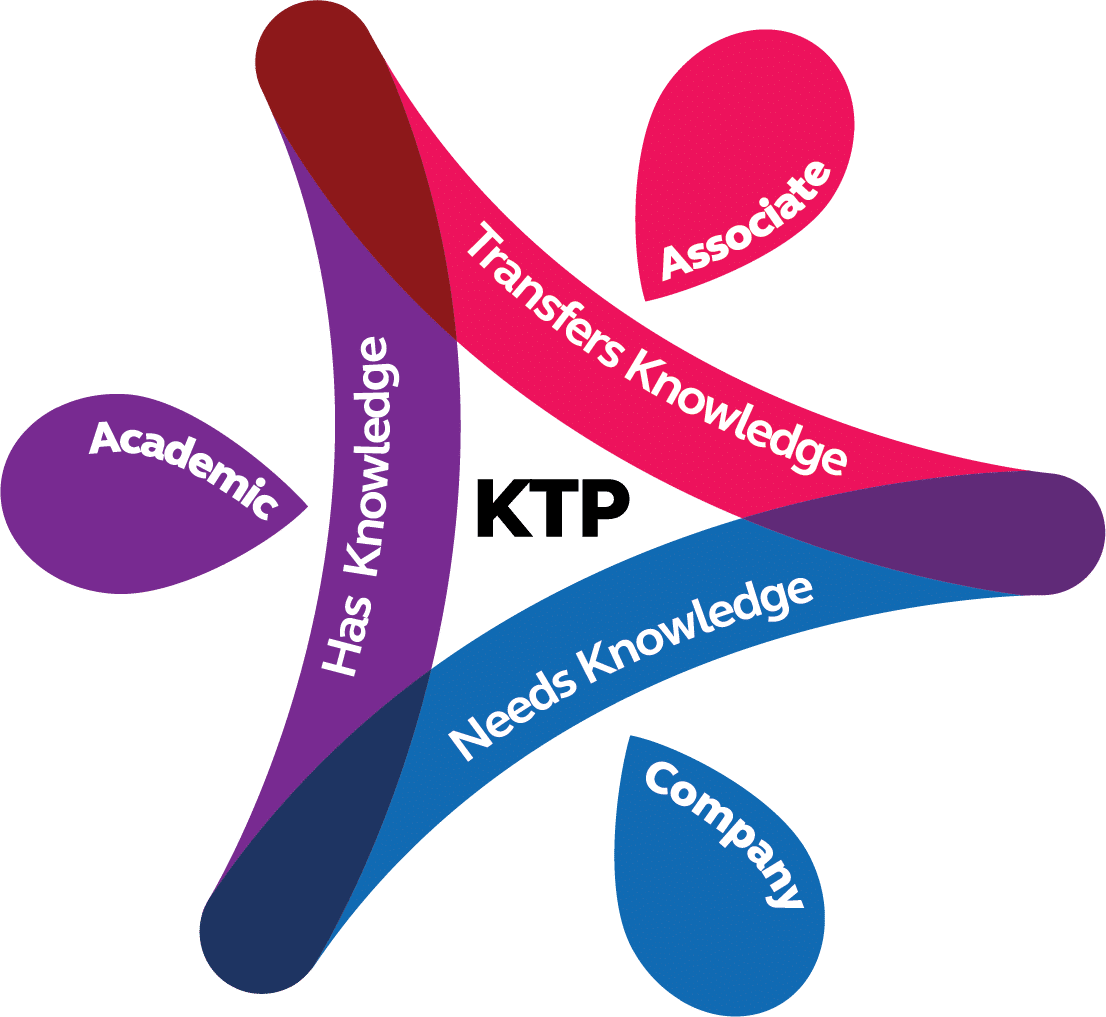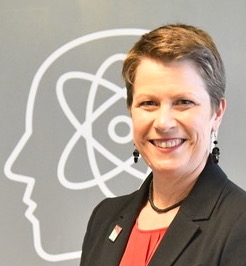Why understanding the nature of partnerships is crucial to knowledge transfer programs
What are universities for? With pressures on funding, academic freedoms under scrutiny and volatile global demographic changes, the need to prove new knowledge can have tangible outputs has never been greater. Simon Linacre looks at one university in the UK which is leading the way in research transformation.
When Digital Science launched its Research Transformation campaign in early April, one of the key aspects the team behind the initiative wanted to explore was not just the ‘what’ of how research enabled change, but the nature of the connection itself between the two sides. For many of us involved in academic research or in industry, we only see one side of this transformation, but don’t stop to think about what has enabled it in the first place.
A key element of research transformation is the ability to understand research from different perspectives, and this is often described in policy documents and commentaries in general terms without spelling out the practicalities of what is going on. And yet to fully understand how to make the shift from working within research institutions to achieving worthwhile impact in industry, it’s the practicalities that in the end really matter.

Knowledge Transfer Partnerships
To help us better understand both the nature of the connection between research and industry and the practicalities involved, what better way than to talk to one of the UK’s leading exponents of knowledge transfer partnerships – or KTPs – in the shape of Leeds Beckett University. LBU has one of the largest student populations in the UK at around 28,000, and ever since it started life back in the early 19th century as Leeds Mechanics Institute, it has had strong links with industry. In the UK, there has been a tradition of KTPs which celebrate their 50th anniversary in 2025. They are partly funded by the government and aim to facilitate the transfer of knowledge and technical skills from universities into industry, as well as improve the skills and business awareness of new graduates.
LBU has been particularly active in this area, with a number of successful partnerships set up with local businesses. Interestingly, these partnerships are not a straightforward transfer of knowledge or expertise from one party to another just for commercial gain, but acknowledge a need on the part of the business for a shift or change in their development, aligned to the business’ wider strategic objectives. We spoke to Jo Griffiths, Head of Knowledge Transfer Partnerships at LBU, to learn more about the connection with businesses and what this shift looks like.

“I am hugely heartened by the sense that businesses see themselves as part of a wider ecosystem and force for good.”
Jo Griffiths, Leeds Beckett University
“I’ve noticed an increase in the number of organizations we’re working with that describe doing something positive and different for the wider community as a key part of their strategic aims. Whether that’s addressing a big global challenge like sustainability – or making changes at a local level to support the growth of the wider business community – I am hugely heartened by the sense that businesses see themselves as part of a wider ecosystem and force for good,” says Ms Griffiths.
“One recent example is that of NuGreen and sister company QMedical. They are small SMEs based on the border of Yorkshire and Lancashire in the UK. Their aspiration is to turn healthcare waste (all that bagged waste you see in hospitals and clinics) into substitute aggregates, principally sand, for use in the construction sector. Working in partnership with material scientists and engineers from the university via the KTP funding, they’re testing and bringing to market new products by converting the waste into something useful.
“There are many other discussions and projects like this being developed – we’re working on projects with third sector, not-for-profit and charities too. And yes, there is a positive commercial impact to the organization from the proposed partnerships (they wouldn’t get the funding without that) but absolutely key to all of them is how they support others – whether at an individual level, at a community level or as part of a wider shift in societal attitudes and insight.”
Benefits
The advantages of such relationships are clear, and are neatly summarized in the graphic below, where there is a symbiotic relationship between a qualified graduate (known as an ‘associate’) who leads the change, the university which creates the teaching or research, and the organization which sees improved performance as a result of the arrangement. Add in to that environmental benefits as seen in the example shared by Jo Griffiths above, it’s clear why such programs have been embraced by so many organizations and universities in the UK.

But is there also a deeper transformation at play, where the implementation itself can inform further research down the line? One high profile academic at LBU has been involved in a number of KTPs, some of which have yielded significant results for the research he conducts. Dr Jim Morgan is Principal Lecturer at LBU, specializing in Human Factors and Occupational (Health) Psychology, and he has been involved in a number of successful KTPs while working at LBU.
For example, he was involved in a project between major infrastructure services and engineering firm Amey, which partnered with LBU on the Target Zero SafetySmart Project. This came about as Amey was facing a challenge regarding one of its employee commitments, which was to create zero harm for them in what were often safety-critical environments. The senior management team at Amey worked with LBU’s Psychology Applied to Safety and Health (PASH) research group on the KTP, filling the recognized need for formal psychological and behavioral knowledge and skills among Amey colleagues to implement and embed behavioral safety strategies and solutions.
The result after a three-year project with Amey’s Consulting and Rail division and LBU was an agreed approach that included both quantitative and qualitative psychological research methods that created a flexible, long-term framework. This, alongside a more detailed understanding of accident risk saw a decrease in incidents, and also led to some cost reductions linked to accidents and incidents.

Case study
LBU has had not one but two successful KTP case studies working with the well-established rail infrastructure companies, Amey and VolkerRail. The following details are drawn from LBU’s REF Impact Case Study in 2021.
BACKGROUND: Human safety is understandably critical to the railway maintenance industry. The UK Network Rail workforce safety statistics for the five years up to 2013/2014 show that major injuries rose by a quarter, and lost time to injuries more than doubled in that time. In addition to personal suffering, the financial cost of workplace injuries was estimated to be nearly £5bn at this time.
At LBU, the Psychology Applied to Safety and Health (PASH) research group – led by Dr Jim Morgan and Dr Matteo Curcuruto – are involved in a research program focused on “helping safety-critical organizations to translate Organizational Psychology, Human Factors, and Health Psychology research knowledge into enhanced behavioral safety management practices”. This research has been funded by, among other sources, two Knowledge Transfer Partnerships (KTPs) in collaboration with industry partners, namely Amey and VolkerRail.
RESEARCH: The research employed in the programs used a ‘bottom-up approach’ to directly involve workers from the start. This approach aimed to generate improved communication, trust and a better culture of safety, with research conducted with workers at the two rail companies, as well as other workers from similar industries.
IMPACT: The result of the SafetySmart project (with Amey) has been clear, with rail operations reduced by a third in lost time injuries and a quarter in non-lost time injuries. Overall, the company estimates as a result of SafetySmart turnover will increase by over £1.3m in the three years after the project finished.
The programs have also achieved industry recognition, with the Amey KTP awarded the highest rating of “Outstanding” by Innovate UK assessors based on impact for the firm, and second highest rating of “Very Good” for the VolkerRail YourAIM project.
Additionally, VolkerRail estimates that as a result of the YourAIM project turnover increased by a quarter of a million pounds, with a further £1m in the three years following the project being completed.

SUMMARY: Research by PASH has undoubtedly developed the safety culture at both Amey and VolkerRail, with demonstrable improvements in hours worked and turnover. Moreover, both companies have now implemented robust behavioral safety protocols to keep an eye on safety-critical workflows, further improving safety. The KTP program therefore not only improves human working conditions and business outcomes, but is also part of a symbiotic relationship with research, providing rich data for further research at universities like LBU.
See Jim and Matteo’s KTP-funded research articles in Dimensions here.
Future REFerence
The ability for universities to show impactful work outside labs and field studies is particularly important in the UK due to its system of research funding, known as the Research Excellence Framework or REF. Billions of pounds of research funding from the government is determined by how universities and their departments perform in their research programs, and KTPs are a key plank in an institution’s strategy to show how their research can have a positive impact on lives and social wellbeing. In Dr Morgan’s words, KTPs are “simply brilliant for the REF”, as they show the impact research programs at universities can have, as well as helping with the recruitment and work experience of postgraduate students, many of whom find employment with KTP partners when their studies have been completed.
So, there are numerous reasons why a university such as LBU should pursue KTPs, and rightly be proud of what they have achieved with the numerous projects they have supported and delivered. What is interesting from a research perspective is the importance of the role people play in the projects, both in terms of the interactions between the university and external organizations, as well as the outcomes and how they positively impact individuals’ lives. In addition, it is also clear that the individual researchers themselves gain a huge amount of wider knowledge from their work over and above the project focus. All in all, given the right structure and opportunities to make a difference through research, researchers can do just that.





























